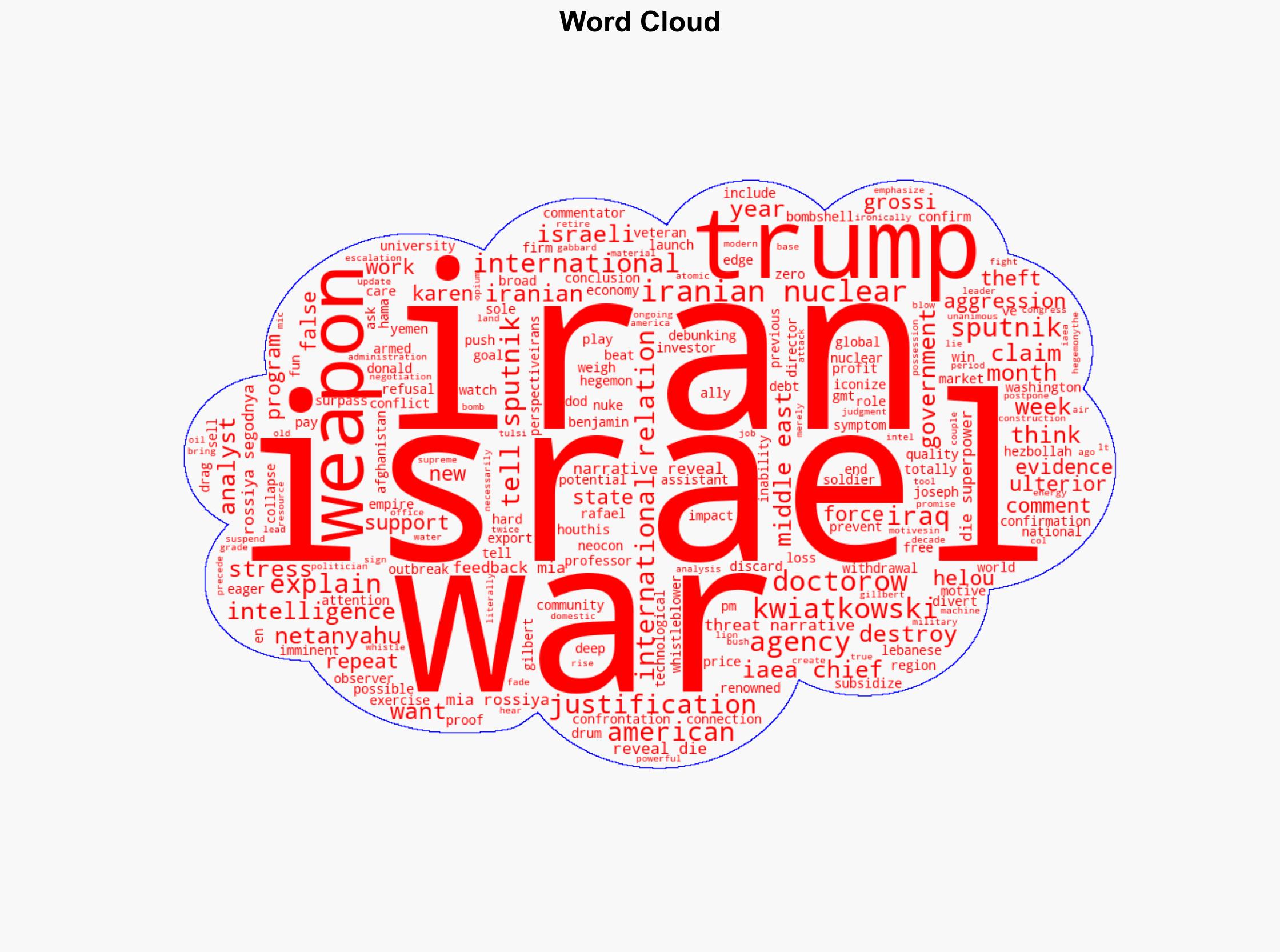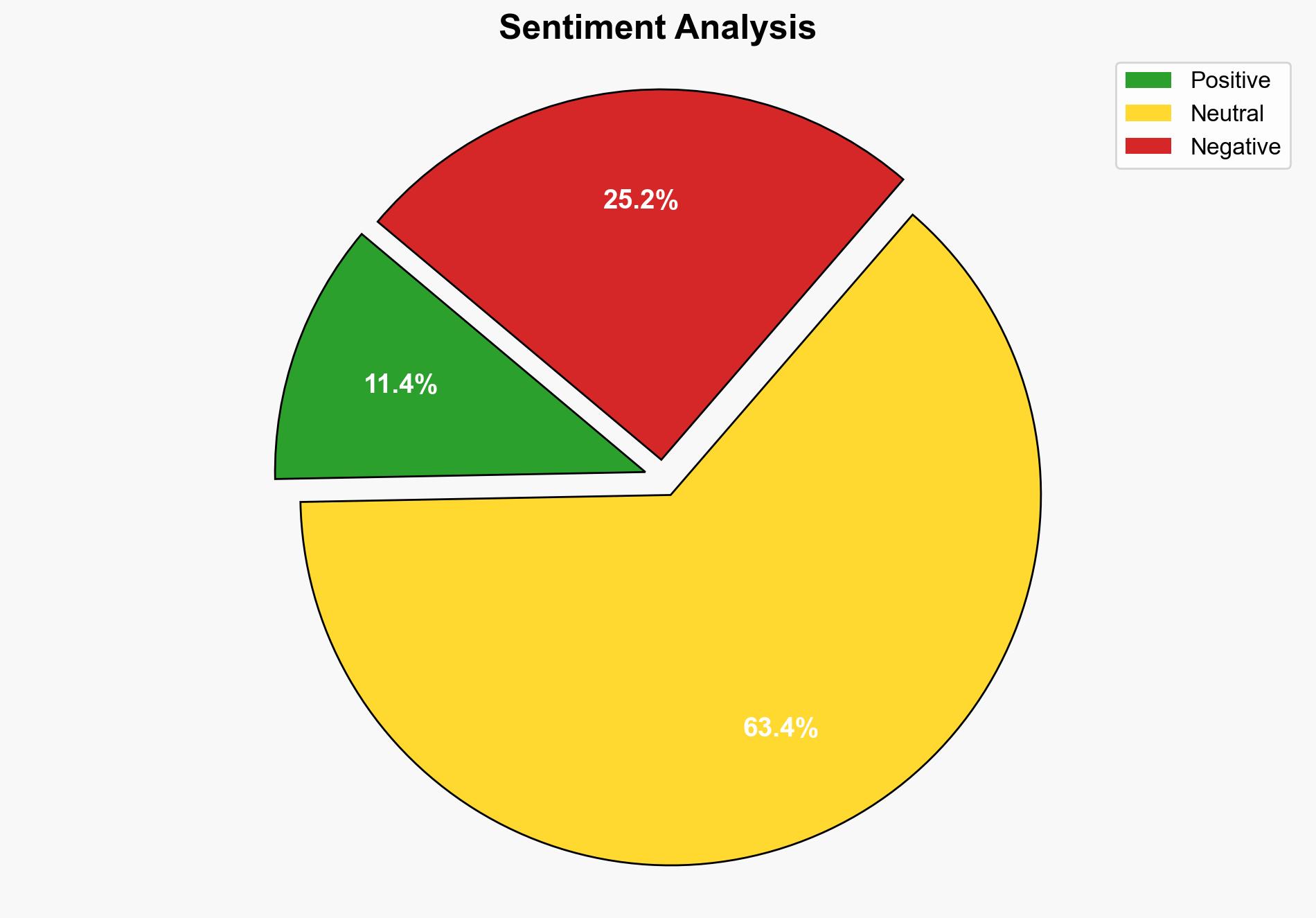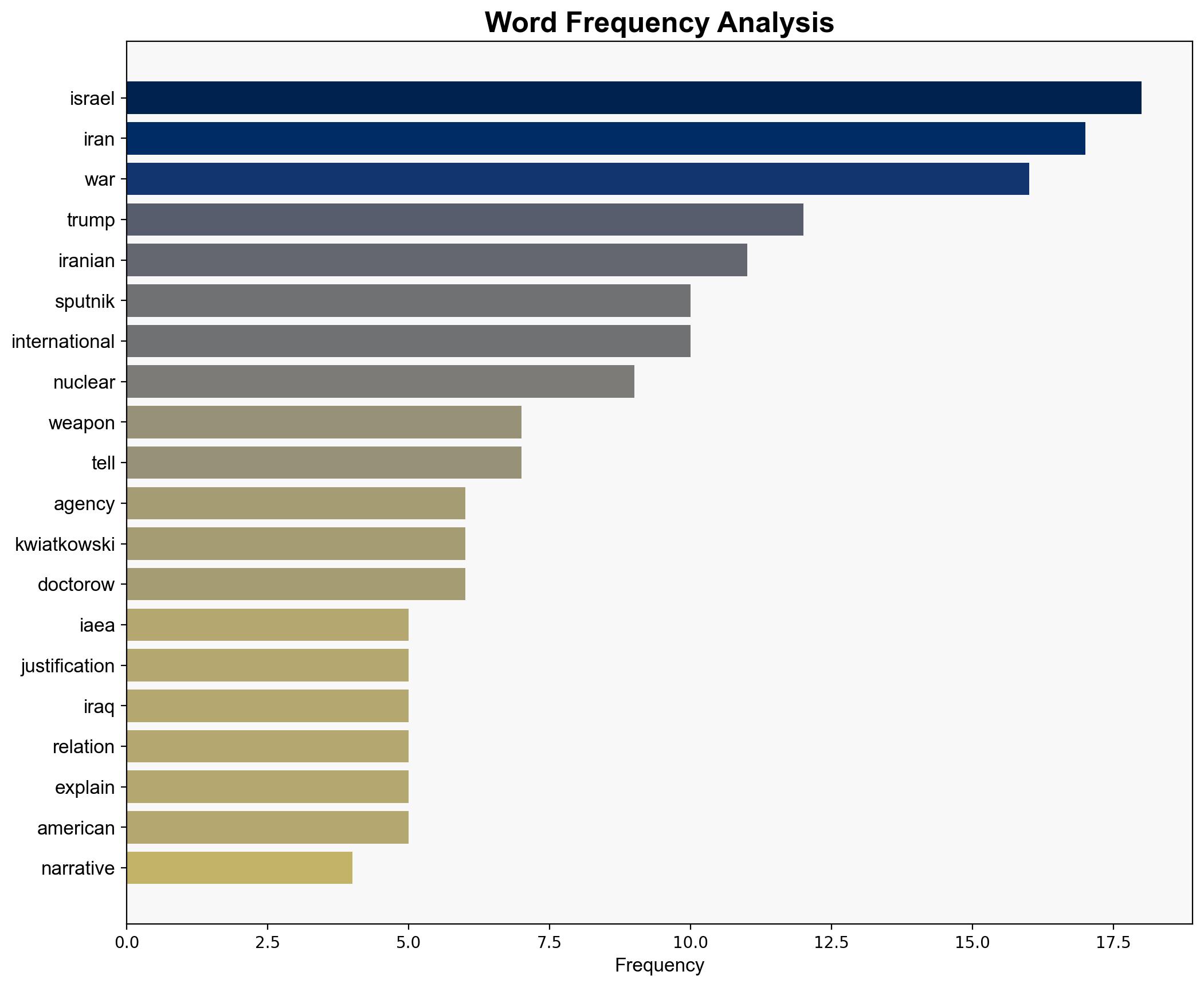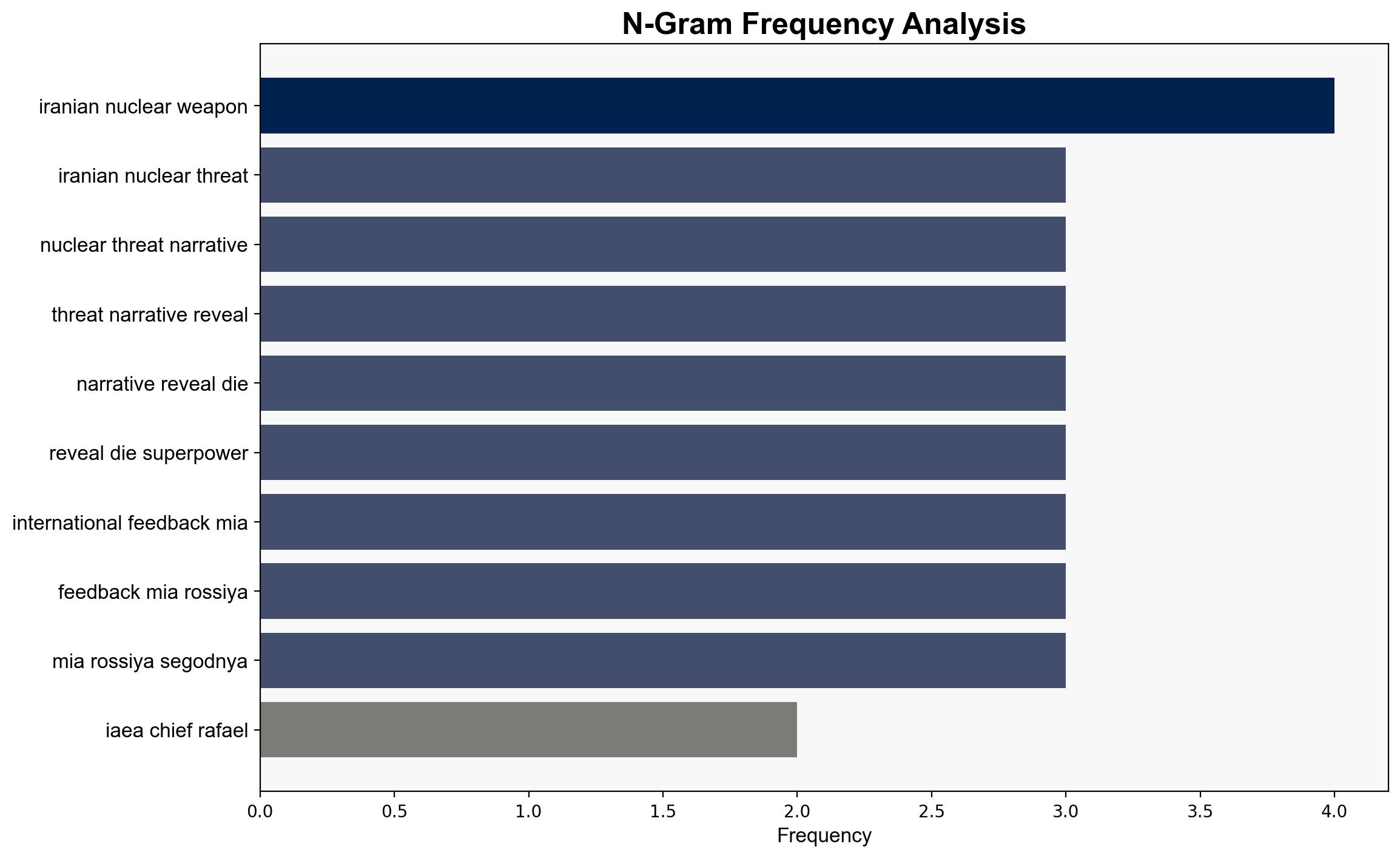What the Iranian ‘Nuclear Threat’ Narrative Reveals About a Dying Superpower – Sputnikglobe.com
Published on: 2025-06-18
Intelligence Report: What the Iranian ‘Nuclear Threat’ Narrative Reveals About a Dying Superpower – Sputnikglobe.com
1. BLUF (Bottom Line Up Front)
The narrative surrounding Iran’s nuclear threat is being used by certain international actors to justify potential military actions, despite the International Atomic Energy Agency (IAEA) confirming no evidence of an ongoing Iranian nuclear weapons program. This report identifies strategic motivations behind these narratives, including regional power dynamics and geopolitical shifts indicative of a declining influence of traditional superpowers.
2. Detailed Analysis
The following structured analytic techniques have been applied to ensure methodological consistency:
Causal Layered Analysis (CLA)
Surface events involve public declarations and media narratives about Iran’s nuclear capabilities. Systemic structures include geopolitical alliances and military posturing, particularly by Israel and the United States. Worldviews reflect a declining superpower’s attempt to maintain influence through military means. Myths pertain to the perceived necessity of military intervention to ensure regional stability.
Cross-Impact Simulation
Potential military actions against Iran could destabilize the region, affecting neighboring countries such as Iraq and Syria, and impacting global oil markets. Economic dependencies, particularly in energy, could lead to broader international repercussions.
Scenario Generation
Scenarios range from diplomatic resolutions that reinforce non-proliferation to escalated military conflicts that could draw in multiple regional and global powers. Each scenario presents different implications for international stability and economic conditions.
3. Implications and Strategic Risks
The perpetuation of the Iranian nuclear threat narrative poses risks of military escalation and regional instability. It could lead to increased cyber threats as state and non-state actors exploit geopolitical tensions. Economically, disruptions in oil supply could trigger global market volatility.
4. Recommendations and Outlook
- Encourage diplomatic engagement with Iran to reinforce non-proliferation commitments and reduce regional tensions.
- Enhance cybersecurity measures to protect against potential retaliatory cyberattacks.
- Monitor energy markets and prepare contingency plans for potential supply disruptions.
- Scenario-based projections suggest that diplomatic resolutions are the best-case outcome, while military escalation represents the worst-case scenario, with a protracted standoff being the most likely if current narratives persist.
5. Key Individuals and Entities
Rafael Grossi, Donald Trump, Karen Kwiatkowski, Gilbert Doctorow, Benjamin Netanyahu, Joseph Helou
6. Thematic Tags
national security threats, geopolitical dynamics, nuclear non-proliferation, regional stability




